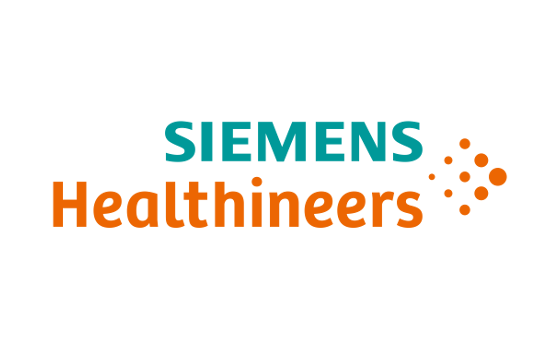 At a special ceremony, employees, the Managing Board and the Supervisory Board of Siemens Healthineers celebrated the official opening of the company's new corporate headquarters in Erlangen together with politicians and prominent healthcare figures. The office building in Karlheinz-Kaske-Strasse took two years to build and involved an investment in the mid double-digit million range. The generous, open office spaces and more than 120 differently designed meeting rooms offer a modern and attractive environment for up to 1000 employees. The building will be used by the Managing Board and the central functions of the company, including human resources, finance and controlling as well as communications and marketing.
At a special ceremony, employees, the Managing Board and the Supervisory Board of Siemens Healthineers celebrated the official opening of the company's new corporate headquarters in Erlangen together with politicians and prominent healthcare figures. The office building in Karlheinz-Kaske-Strasse took two years to build and involved an investment in the mid double-digit million range. The generous, open office spaces and more than 120 differently designed meeting rooms offer a modern and attractive environment for up to 1000 employees. The building will be used by the Managing Board and the central functions of the company, including human resources, finance and controlling as well as communications and marketing.
"Siemens Healthineers is one of the largest German companies active in an absolute growth area - and is also one of the most successful Siemens businesses. Not least because of the public listing the company is already more successful than before. This has also been underlined by our TecDAX and MDAX inclusions in record time," says Michael Sen, Member of the Managing Board of Siemens AG and Chairman of the Supervisory Board of Siemens Healthineers AG. "When we first discussed the construction of new corporate headquarters within the Siemens Healthcare management team a good four years ago, it quickly became clear that we wanted to stay close to our roots in Erlangen. Our new headquarters show that clusters of excellence are able to positively shape a whole region in Germany and attract follow-up investments," he continued.
"Siemens Healthineers is a young company that also has a long tradition - and nowhere is this as clear as in Erlangen. As an independent, publicly listed company, we want to shape the future of medicine from a position of global leadership," said Dr. Bernd Montag, CEO Siemens Healthineers. "With our new corporate headquarters, we have created a dynamic and flexible contemporary working environment that will allow us to implement the targets we have set ourselves for our customers and partners," he added.
"Since its historical beginnings in the 19th century, medical technology from Siemens has always been closely linked with Erlangen. Thanks also to the presence of Siemens Healthineers, both our city and the Medical Valley EMN can benefit from a concentration of research and educational institutions, clinics and service providers in the fields of medicine and medical technology that is unique within Germany," said Dr. Florian Janik, Mayor of Erlangen. "We are very pleased that Siemens Healthineers is continuing this historic partnership in the long term with its new corporate headquarters," he added.
The employees of Siemens Healthineers were involved in the conception of their new working environment from the outset, as the new headquarters was intended to be future-oriented and foster cooperation between employees as well as customers and partners. It is regarded as the model for all other Siemens Healthineers locations worldwide. With its material and color concept, the building is a visible commitment to our corporate culture, simultaneously offering an open, team-oriented, communication-friendly and efficient working environment. The generous office landscape is complemented by around 75 "think tanks", which employees can go into at any time for concentrated work or for meetings and telephone calls. 14 "Meet & Talk" rooms are also available for informal exchanges, while 40 conference and meeting rooms offer slightly more space for intensive discussions with guests and colleagues. The new company headquarters was built in the immediate vicinity of the former administrative building in Erlangen, just a few hundred meters away from the historical headquarters of the predecessor company Reiniger, Gebbert & Schall, today home to the Siemens Healthineers MedMuseum.
About Siemens Healthineers
Siemens Healthineers enables healthcare providers worldwide to increase value by empowering them on their journey towards expanding precision medicine, transforming care delivery, improving patient experience and digitalizing healthcare. A leader in medical technology, Siemens Healthineers is constantly innovating its portfolio of products and services in its core areas of diagnostic and therapeutic imaging and in laboratory diagnostics and molecular medicine. Siemens Healthineers is also actively developing its digital health services and enterprise services.In fiscal 2017, which ended on September 30, 2017, Siemens Healthineers generated revenue of €13.7 billion and adjusted profit of €2.5 billion and has about 48,000 employees worldwide.